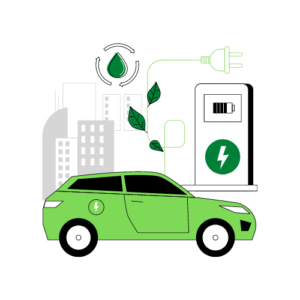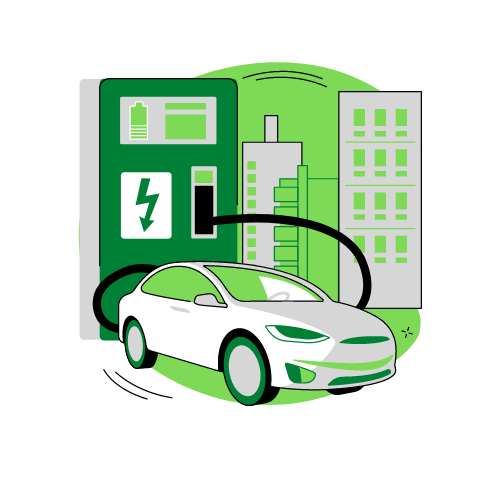Toyota has announced that it will be re-evaluating its Electric Vehicle strategy in a bid to speed up the entry of its electric vehicle into the market and compete with Tesla, which has so far dominated the Electric Vehicle space.
In previous years, Toyota has been reluctant to commit to the production of EVs fully and has instead focused on producing hybrid cars and the use of hydrogen fuel in its cars. However, with the recent explosion of the electric vehicle market, which has rapidly grown to exceed its own projections, in December 2021, the company announced a new project that will see it commit up to $38 billion to the production and distribution of 30 new models of electric vehicles. This has not gone exactly according to plan, as the company has been forced to recall the Bz4x -one of its first Electric Vehicle releases- due to a wide range of safety concerns it received from its customers.
 According to reports, Toyota had previously projected the production of electric vehicles on a large scale to be unsustainable. However, the company was surprised when Tesla leveraged the use of new-generation manufacturing technology such as the “Giga Press”, a super-powered casting machine that produced larger casting parts and helped Tesla achieve faster production time and lower manufacturing costs. This oversight has caused Toyota to fall behind in the EV race, and by the time it had set up its first zero-emission division, Tesla already had three different models on the road. In fact, Tesla already has the capacity to manufacture millions of long-range vehicles at an industry-leading gross margin.
According to reports, Toyota had previously projected the production of electric vehicles on a large scale to be unsustainable. However, the company was surprised when Tesla leveraged the use of new-generation manufacturing technology such as the “Giga Press”, a super-powered casting machine that produced larger casting parts and helped Tesla achieve faster production time and lower manufacturing costs. This oversight has caused Toyota to fall behind in the EV race, and by the time it had set up its first zero-emission division, Tesla already had three different models on the road. In fact, Tesla already has the capacity to manufacture millions of long-range vehicles at an industry-leading gross margin.
This re-evaluation is expected to delay some electronic vehicle programs that the automobile giant already has in place. The strategy revamp is expected to be led by Mr Shigeki Terashi and is expected to help the company to adopt better production processes that will help the company to produce quality vehicles that can actively compete in the market.
At a recent event, a c ompany spokesman commented: “In order to achieve carbon neutrality, Toyota’s own technology, as well as the work we are doing with a range of partners and suppliers, is essential.” This comment clearly suggests that Toyota is taking notes from its competitors and is planning to use this information to develop its own efficient Electric Vehicle Platform.
ompany spokesman commented: “In order to achieve carbon neutrality, Toyota’s own technology, as well as the work we are doing with a range of partners and suppliers, is essential.” This comment clearly suggests that Toyota is taking notes from its competitors and is planning to use this information to develop its own efficient Electric Vehicle Platform.
Also, the company has assured that while it focuses on implementing new electric vehicle strategies, it will also play “with all the cards in the deck” to provide a wide array of vehicles for its customers.
There have been a lot of reactions to the announcement; while some people agree that although it’s a little late, the plan to develop a new electric vehicle strategy is a good one that will serve the company very well in the long run, others fear that it is too big of a risk. Considering that Toyota is already late to the electric vehicle party, another delay in its existing programs could be disastrous.
According to reports, Toyota had previously projected the production of electric vehicles on a large scale to be unsustainable. However, the company was surprised when Tesla leveraged the use of new-generation manufacturing technology such as the “Giga Press”, a super-powered casting machine that produced larger casting parts and helped Tesla achieve faster production time and lower manufacturing costs. This oversight has caused Toyota to fall behind in the EV race, and by the time it had set up its first zero-emission division, Tesla already had three different models on the road. In fact, Tesla already has the capacity to manufacture millions of long-range vehicles at an industry-leading gross margin.
 This re-evaluation is expected to delay some electronic vehicle programs that the automobile giant already has in place. The strategy revamp is expected to be led by Mr Shigeki Terashi and is expected to help the company to adopt better production processes that will help the company to produce quality vehicles that can actively compete in the market.
This re-evaluation is expected to delay some electronic vehicle programs that the automobile giant already has in place. The strategy revamp is expected to be led by Mr Shigeki Terashi and is expected to help the company to adopt better production processes that will help the company to produce quality vehicles that can actively compete in the market.
At a recent event, a company spokesman commented: “In order to achieve carbon neutrality, Toyota’s own technology, as well as the work we are doing with a range of partners and suppliers, is essential.” This comment clearly suggests that Toyota is taking notes from its competitors and is planning to use this information to develop its own efficient Electric Vehicle Platform.
Also, the company has assured that while it focuses on implementing new electric vehicle strategies, it will also play “with all the cards in the deck” to provide a wide array of vehicles for its customers.
There have been a lot of reactions to the announcement; while some people agree that although it’s a little late, the plan to develop a new electric vehicle strategy is a good one that will serve the company very well in the long run, others fear that it is too big of a risk. Considering that Toyota is already late to the electric vehicle party, another delay in its existing programs could be disastrous.

